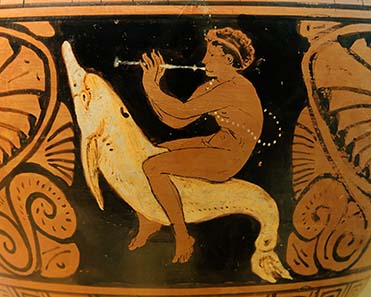Rumi or Sue Me
The nafs is a sea of calm until it roars. The nafs is a Hell that radiates little heat. The nafs is an ankle-deep river you drown in. Better to be ignorant of worldly concerns, better to be mad and flee from self-interest, better to drink poison and spill the water of life, better to revile those who praise you, and lend both the capital and the interest to the poor, forgo safety and make a home in danger. Sacrifice your reputation and become notorious. I have tried caution and forethought; from now on I will make myself mad.
The nafs is to be understood in a similar light as Cartesian ego cogito, the transcendental subject of reason, or the immature, bounded subject of the Enlightenment. For Rumi the uncanny contradictions of faith in concepts rendered mythical breeds a forgotten and forlorn mood; externalizing self-reflexivity onto the certainty of identity of the self with its conceptual apparatus deflates and depletes being of its creative capacity for poesis.
 Yet, the situation isn't completely overdetermined by the drudges of despair; one may always flee from the imposed order of an alien selfhood, take a topsy-turvy turn, deciding without judgment between madness disclosed as melancholy or the mayhem delivered as a melody. A melody completely unknown to the Athenian flute player of Aristotelian teleology, or the Corp of Drums when the sun refused to set on the British Empire and composed of barely beyond boyhood drummers, learning and giving the orders of warfare, where comprehension of the threshold of play, when the drum beat's dance between wooden member and raw hide head ceases to play but becomes an unthought extension of a heart stuck in the violent oscillations of a warrior resonance.
Yet, the situation isn't completely overdetermined by the drudges of despair; one may always flee from the imposed order of an alien selfhood, take a topsy-turvy turn, deciding without judgment between madness disclosed as melancholy or the mayhem delivered as a melody. A melody completely unknown to the Athenian flute player of Aristotelian teleology, or the Corp of Drums when the sun refused to set on the British Empire and composed of barely beyond boyhood drummers, learning and giving the orders of warfare, where comprehension of the threshold of play, when the drum beat's dance between wooden member and raw hide head ceases to play but becomes an unthought extension of a heart stuck in the violent oscillations of a warrior resonance.Labels: Aristotle, British Empire, Corp of Drums, Cyber Culture, cyber rhetoric, Cyberhetoric, Cyberhetoric Blog, descartes, Drummer Boy, Flute Player, nafs, Poetry, Rumi, Sufi



0 Comments:
Post a Comment
Care to Share your thoughts on this post?
Subscribe to Post Comments [Atom]
<< Home